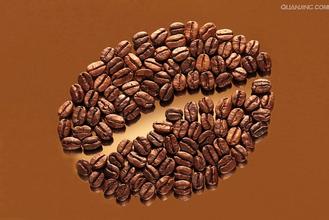The historical origin and taste of mocha coffee
Ethiopia, known as the birthplace of coffee, has a history of coffee origin and a traditional agricultural country, and is most famous for its "mocha-Mocha" coffee. In the West, Mocha is not only the name of the coffee variety, but also refers to the method of brewing coffee or the utensils for brewing coffee and special conditioning methods. Mocha coffee beans are mostly dried, but there are also so-called gourmet water-washed beans. Mocha beans are famous for their sour taste, slightly sweet, slightly alcoholic aroma and low caffeine content.
Palate: slightly sweet with soft acidity, sweetness has its unique round ripe taste and its unique sweet, sour and bitter taste is extremely elegant.
Bouquet: intense aromas of fruit and grass.
Vision: small bean particles and uneven bean color
Mocha coffee is produced in Ethiopia. Beans are small and fragrant, with strong sour and mellow taste, moderate sweetness and special flavor. Washed coffee beans are well-known high-quality coffee, often drunk on a single basis. But if mixed coffee can be mixed, it is a kind of comprehensive coffee with ideal flavor.
In Yemen, coffee growers plant poplars to provide shade for coffee to grow. As in the past, these trees are planted on steep terraces to maximize the use of less rainfall and limited soil resources. In addition to the Tippika Coffee Tree and the Bourbon Coffee Tree, more than a dozen different coffee species native to Ethiopia are grown in Yemen. However, even the best coffee, such as premium mocha, is air-dried and the peel is connected to the beans. Until now, Yemen often uses traditional stone mills to remove dry and hard fruit shells, which makes the shape of coffee beans very irregular and often damages them.

Important Notice :
前街咖啡 FrontStreet Coffee has moved to new addredd:
FrontStreet Coffee Address: 315,Donghua East Road,GuangZhou
Tel:020 38364473
- Prev

Types and characteristics of individual coffee beans
(1) Blue Mountain Coffee: from Jamaica. Pure Jamaican Blue Mountain Coffee perfectly combines the unique sour, bitter, sweet and mellow flavors of coffee. The aroma is very rich, mellow and smooth, with long-lasting fruit flavor, forming a strong and attractive elegance, which is unmatched by other coffee. Blue Mountain Coffee is the best of the best, with a price of thousands of dollars per pound.
- Next

What kind of coffee is there?
Java coffee: produced in Java Island, Indonesia, full particles, spicy flavor, relatively low acidity, delicate taste, good balance, is a refined aromatic coffee. Costa Rican coffee: excellent flavor, smooth, strong acidity, high grade, with attractive aroma. Guatemala coffee, grown in Antigua, a region with fertile volcanic soils, is the coffee equivalent
Related
- Does Rose Summer choose Blue, Green or Red? Detailed explanation of Rose Summer Coffee plots and Classification in Panamanian Jade Manor
- What is the difference between the origin, producing area, processing plant, cooperative and manor of coffee beans?
- How fine does the espresso powder fit? how to grind the espresso?
- Sca coffee roasting degree color card coffee roasting degree 8 roasting color values what do you mean?
- The practice of lattes: how to make lattes at home
- Introduction to Indonesian Fine Coffee beans-- Java Coffee producing area of Indonesian Arabica Coffee
- How much will the flavor of light and medium roasted rose summer be expressed? What baking level is rose summer suitable for?
- Introduction to the characteristics of washing, sun-drying or wet-planing coffee commonly used in Mantenin, Indonesia
- Price characteristics of Arabica Coffee Bean Starbucks introduction to Manning Coffee Bean Taste producing area Variety Manor
- What is the authentic Yega flavor? What are the flavor characteristics of the really excellent Yejasuffi coffee beans?

